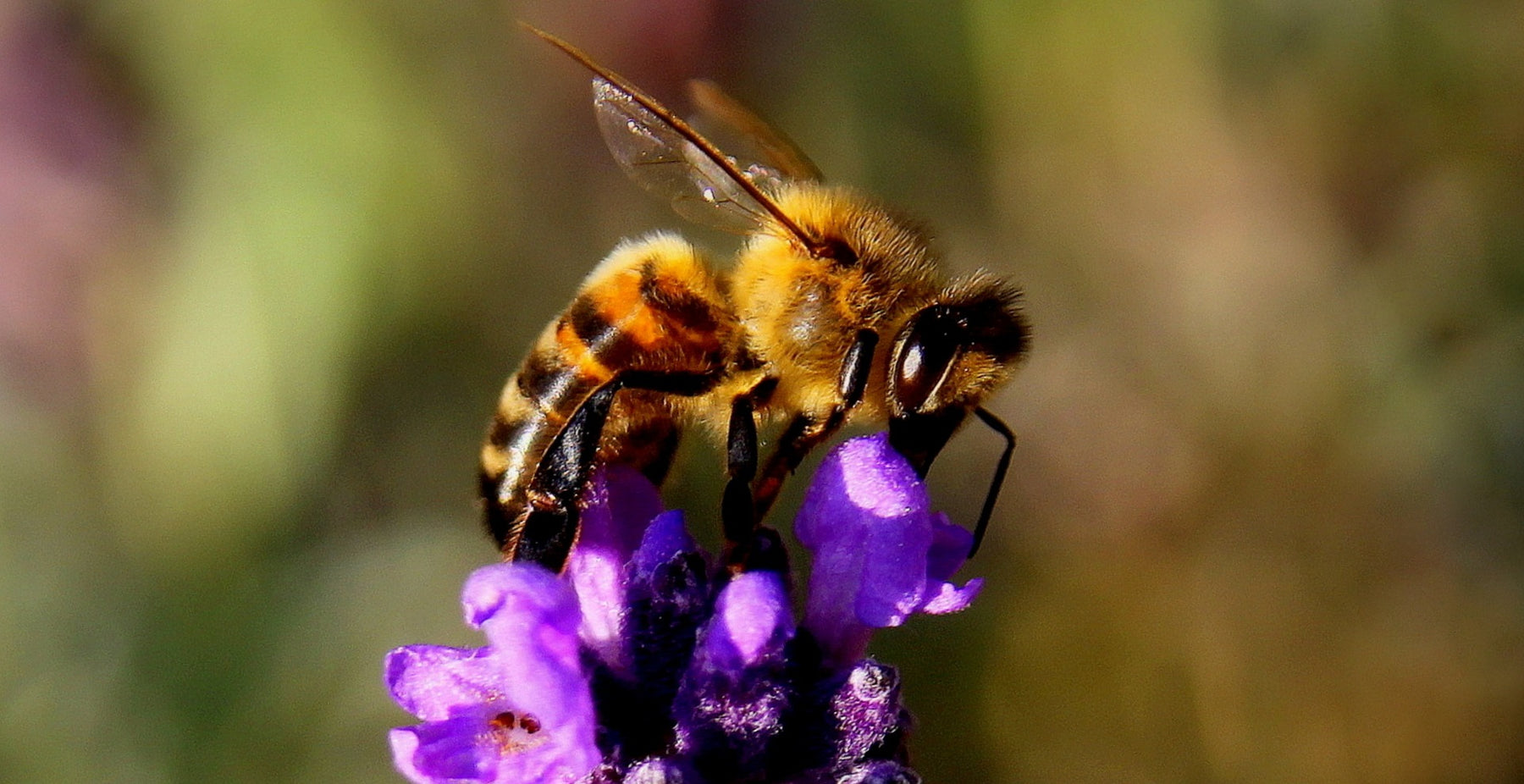
Why bee populations are dying, and what you can do to help save the bees
5 ways to increase healthy bee populations
"If the bee disappeared off the face of the earth, man would only have four years left to live." - Maurice Maeterlinck
So here's a sad fact: the rapid global decline in bee populations poses a serious threat to all species on planet earth. Bees perform about 80% of all pollination worldwide, and a single bee colony can pollinate approximately 300 million flowers each day. Bees are essential for the survival of planet earth! Without bees, there would be no more flowers, fruits or vegetables - which in turn would lead to a mass extinction of many, many species of animals and other plants.
Sadly, our planet has seen a rapid decline of the bee population. Some parts of the world have experienced losses of up to a horrifying 90% of their bees! There are various reasons contributing to the global bee decline, including:
- Industrial agriculture
- Loss of habitat due to urbanisation
- Loss of biodiversity and availability of plants to forage
- Climate change
- Parasites such as varroa mites, a parasite that invades hives and spreads diseases
- Unsustainable bee farming practices
- Harmful chemicals such as herbicides and pesticides used on crops and in gardens
Evidently, almost all of the reasons for the loss of bee populations derive from human error and negligence. This is a serious cause for concern and if we don't start making changes, it will soon be too late! You may think to yourself, "Well, what's the point in caring when large agriculture and industrial companies won't do anything to help change the situation?". The reality is that it would be impossible for one single person to save the bees. Rather, if lots of people around the world do small things every day to help, we could see great results! These small efforts don't even require you to leave your home!
Here are 5 small yet powerful ways to help save the bees.
1) Say no to pesticides and herbicides

Insecticides, pesticides, fungicides and herbicides.. these are chemicals you want to avoid as much as possible. They can be extremely toxic for bees and even wipe out entire colonies! When bees come into contact with these chemicals, either through physical contact or ingestion, the bee will suffer from acute or lethal toxicity. If the bee manages to get back to its colony before dying, the chemical may be passed to the other bees and wipe out the entire hive or cause colony collapse disorder!
If you're serious about saving the bees, stop using harsh chemicals in your garden. An even greater step would be to stop supporting companies (including farms) that use harsh chemicals, and start supporting organic products! Eating organic is one way of supporting the banning of pesticides.
2) Turn your garden into a bee-friendly garden

It's no secret that bees adore buzzing among flower-filled gardens. The more flowers you have, the more you'll attract bees. With more bees buzzing around, more pollination and honey-making will take place, and healthy bee colonies are able to thrive!
Downgrade or eliminate your lawn. Lawns are practically like a desert for bees, having nothing for bees to pollinate! If your lawn takes up a large portion of your garden space, turn parts (or all) of it into a bee-friendly playground! Bees are known to love most flowering plants, but there are a few which are especially popular. Ensure you have a good amount of dandelions, geranium, clover, sunflowers, lavender, thistles, mint and alfalfa.
Install a little water basin or bird bath for the bees to drink from. You can get creative by placing stones or corks in the water for the bees to stand on while they drink.
View our collection of non-GMO and organic seeds >>
3) Leave beehives alone

Most people's first reaction to finding a beehive is freaking out and wanting to get rid of it. If the bees are not causing a problem, why would you want to remove them? Bees are not out to attack or hurt anybody. If the beehive does become a problem, please do NOT contact an exterminator or pest control company that will kill the bees. Rather source an eco-friendly company who will remove and relocate the bees to a better-suited area.
4) Choose your honey carefully

Due to rapid expansion of industrialisation and urbanisation, the population of bees in the wild is declining at a shocking rate. Bees are now struggling to find suitable places to set up home, and many hives are being killed off by pest control companies. This leaves a large percentage of bee populations in the hands of local beekeepers and farmers.
It's fantastic that an increasing number of beekeepers and farmers are turning to sustainable and organic measures, and they need our support! When purchasing honey, make sure you're not buying from commercial producers, as they almost never support sustainable practice in beekeeping. Not only do you want to only support sustainable beekeeping farmers, but you want to buy as local as possible. This will help reduce your carbon footprint!
View our collection of sustainable, local, unprocessed and organic honey >>
5) Spread the word
Raising awareness and educating those around you is an easy way to help save the bees. Many people don't understand how important bees are to the well-being of our planet! Teach your kids about bees, sustainable practices and the environment. Instead of chatting to your friends about what happened on the latest season of Keeping Up With The Kardashians, share ideas on how you can do your small part to help save the bees!
If you have any questions, please contact our team or leave a comment below for FREE advice. We always love hearing from you!



Comments
Leave a comment